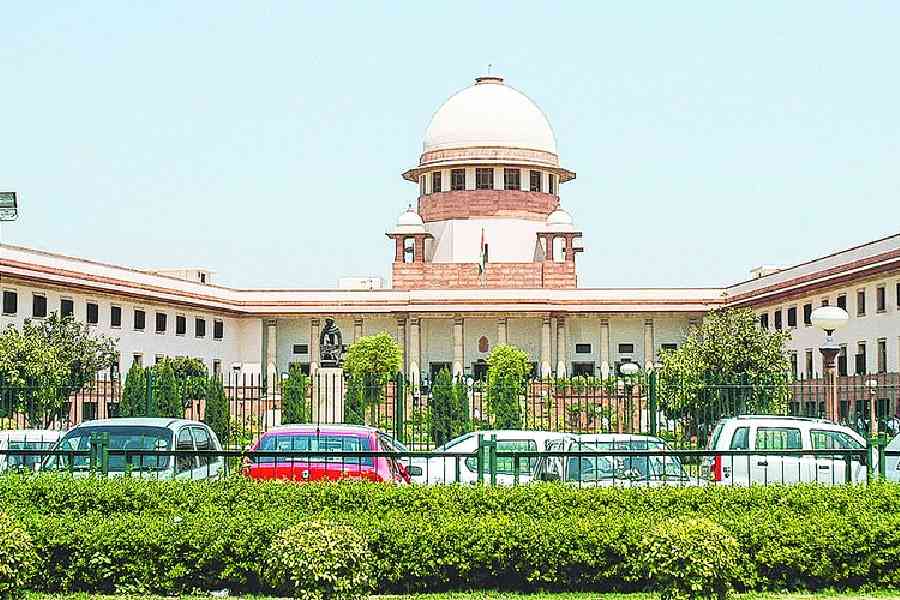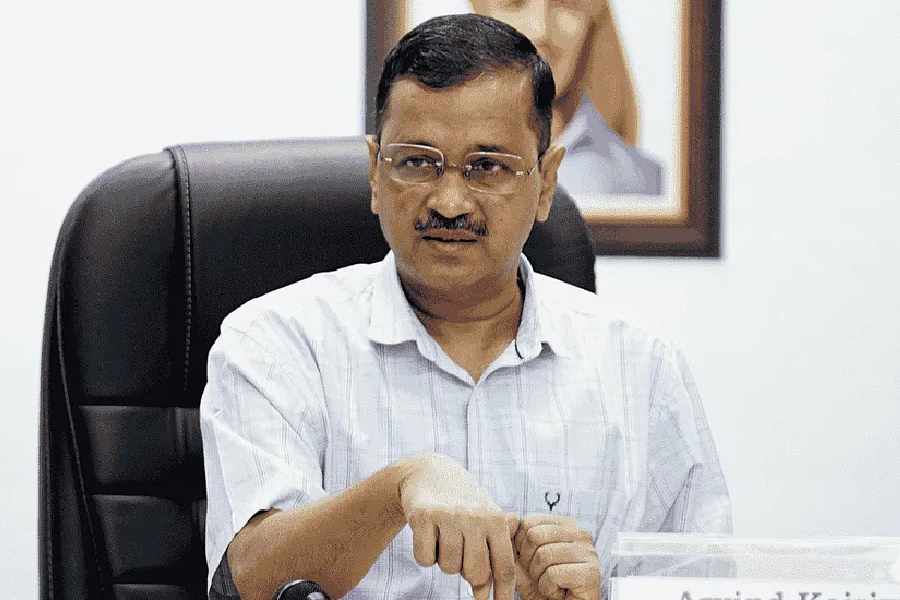The Supreme Court on Thursday ruled that the Delhi government has exclusive powers over transfer and posting of IAS officers in the national capital except in matters relating to “police, public order and land".
The verdict ended decades of confrontation between the Centre and the Delhi government over supremacy relating to the administration of the national capital, a face-off that has intensified during the tenures of the Arvind Kejriwal-led AAP and the BJP dispensation.
A five-judge constitution bench headed by Chief Justice D.Y. Chandrachud reminded the Centre that in a “representative democracy” and under the federal structure, the states should have leeway in matters of administration as they represent the regional aspirations and will of the local people.
“The legislative and executive power of NCTD (National Capital Territory of Delhi) over Entry 41 shall not extend over to services related to ‘public order’, ‘police’, and ‘land’. However, legislative and executive power over services such as Indian Administrative Services, or Joint Cadre services, which are relevant for the implementation of policies and vision of NCTD in terms of day-to-day administration of the region shall lie with NCTD,” the bench, which included Justices M.R. Shah, Krishna Murari, Hima Kohli, and P.S. Narasimha, said.
“Officers thereunder may be serving in NCTD, even if they were not recruited by NCTD.... NCTD, similar to other States, also represents the representative form of government. The involvement of the Union of India in the administration of NCTD is limited by constitutional provisions, and any further expansion would be contrary to the constitutional scheme of governance,” the court added.
The bench passed the judgment while dealing with an appeal filed by the Kejriwal government challenging a Delhi High Court verdict that took the contrary view that subjects relating to the “services” fell under the purview of the Union government and the Delhi government had no say in the posting and transfer of officials.
CJI Chandrachud, who authored the judgment, cited the Indian Administrative Service (Cadre) Rules, 1954, which deal with the posting of IAS officers. A combined reading of Rules 2, 7 and 11A indicates that postings within the state cadre as well as the joint cadre shall be made by the government of the respective state, Justice Chandrachud said.
“We reiterate that in light of Article 239AA and the 2018 Constitution Bench judgment, the Lieutenant Governor is bound by the aid and advice of the Council of Ministers of NCTD in relation to matters within the legislative scope of NCTD. As we have held that NCTD has legislative power over ‘services’... the Lieutenant Governor shall be bound by the decisions of GNCTD on services.... To clarify, any reference to ‘Lieutenant Governor’ over services (excluding services related to ‘public order’, ‘police’ and ‘land’) in relevant Rules shall mean Lieutenant Governor acting on behalf of GNCTD,” the constitution bench said.
It added: “The division of administrative powers between the Union and the NCTD... must be respected.”
“In the spirit of cooperative federalism, the Union of India must exercise its powers within the boundaries created by the Constitution," the court said.
The court rejected the argument of the Centre that as Delhi was the seat of the Union government, national interest takes precedence over local interest.












